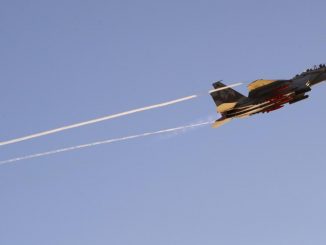
The chairman of EgyptAir, Ahmed Adel, announced on Monday “heavy losses” following the country’s participation in the Gulf blockade, which has been imposed on Qatar for the second year in a row.
“The cessation of our [EgyptAir] flights to the Qatari capital of Doha has incurred heavy losses on the company,” Adel said in a meeting with the Egyptian parliament’s tourism and civil aviation committee.
He added that the recent events in Syria and Libya have “negatively” affected the national carrier’s annual sales.
Adel did not provide details on the value of the losses.
“More than 50 per cent of the tickets’ fares are being obtained by the state’s tax authority,” the national airline’s president pointed out.
“It’s unfair to compare EgyptAir tickets’ prices to other international competitors, especially those who are being supported by their governments,” Adel stressed.
In June 2017, Saudi Arabia, the United Arab Emirates, Bahrain and Egypt severed ties with Qatar and imposed a complete blockade on Doha accusing it of “supporting terrorism.” Qatar vehemently denies the allegations. Numerous international governments, including the United States, have warned of the blockade’s impact on the region’s stability.
Egypt-Saudi Causeway
Saudi Arabia is currently mulling the possibility of constructing a causeway to connect the kingdom with Egypt, the country’s transport minister, Nabil Al-Amoudi, announced yesterday.
“King Salman Bridge will allow the passage of vehicles, and freight and passenger trains,” Al-Amoudi told state-owned Saudi Press Agency (SPA).
The bridge, he explained, will link the kingdom’s north-western Red Sea coastal city of Tabuk with Egypt’s the Sinai Peninsula, passing through the country’s touristic resort of Sharm El-Sheikh.
The minister pointed out that the construction of the Saudi-funded bridge would take around eight years, with an expected total cost of $4-5 billion.
The Saudi-Egypt causeway, which length is expected at 7-9 kilometres, is planned to achieve $200 billion of trade revenues per year.
The project was first proposed by the Saudi monarch, King Salman Bin Abdul Aziz, during the Egyptian-Saudi summit, which was held in the Egyptian capital of Cairo in April 2016. The agreement was also witnessed by the Egyptian President Abdel Fattah Al-Sisi.
The Saudi Crown Prince, Mohammad Bin Salman, arrived in Egypt earlier on Monday, as part of his first foreign tour since the murder of the killing of Saudi journalist Jamal Khashoggi inside the Saudi consulate in Istanbul on 2 October.
Nearly 100 Egyptian journalists officially rejected Salman’s visit saying that “the Saudi regime is violating human values, especially the right to live, both for its citizens and Egyptians and non-Egyptians working in the kingdom.”



